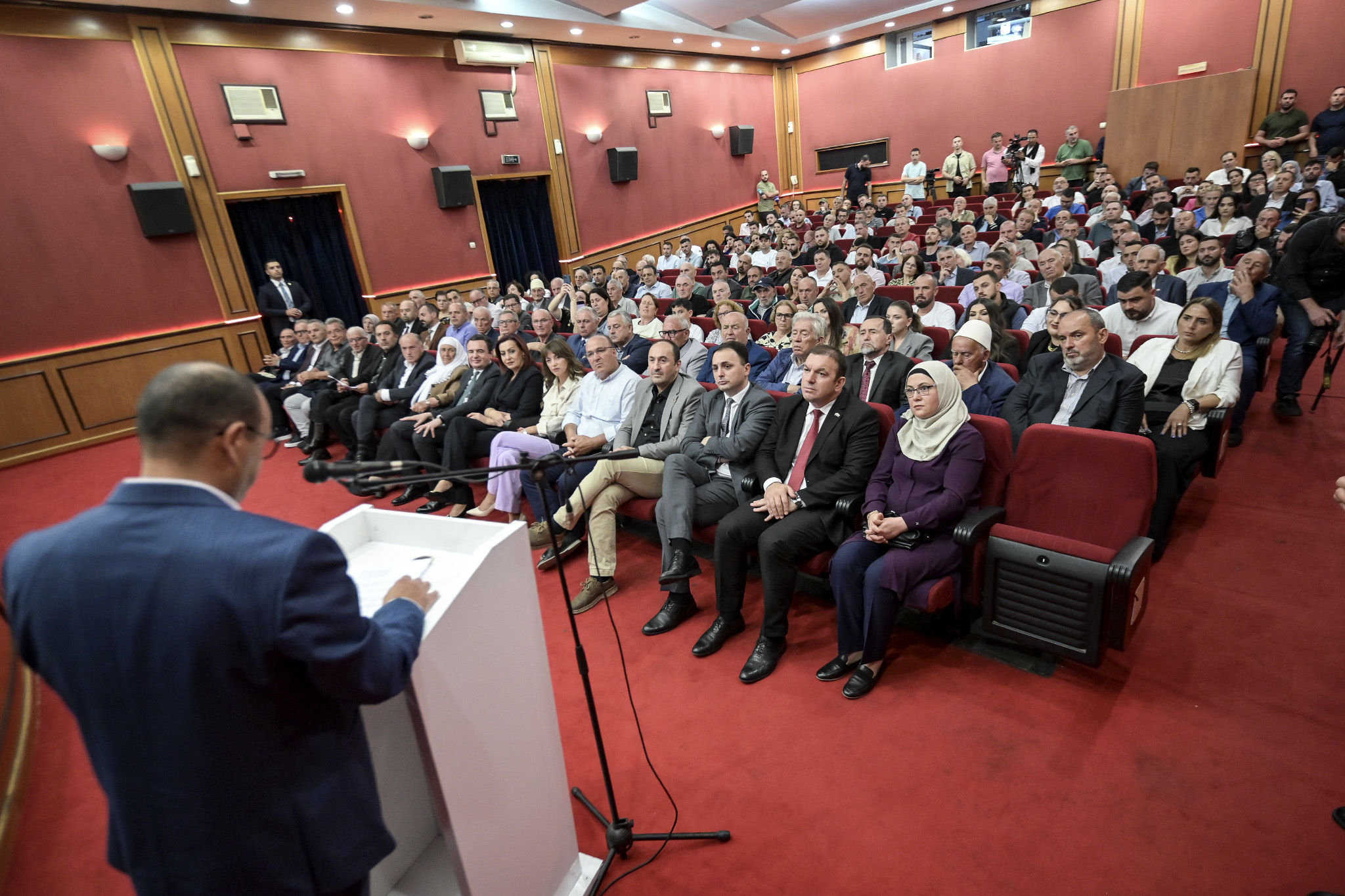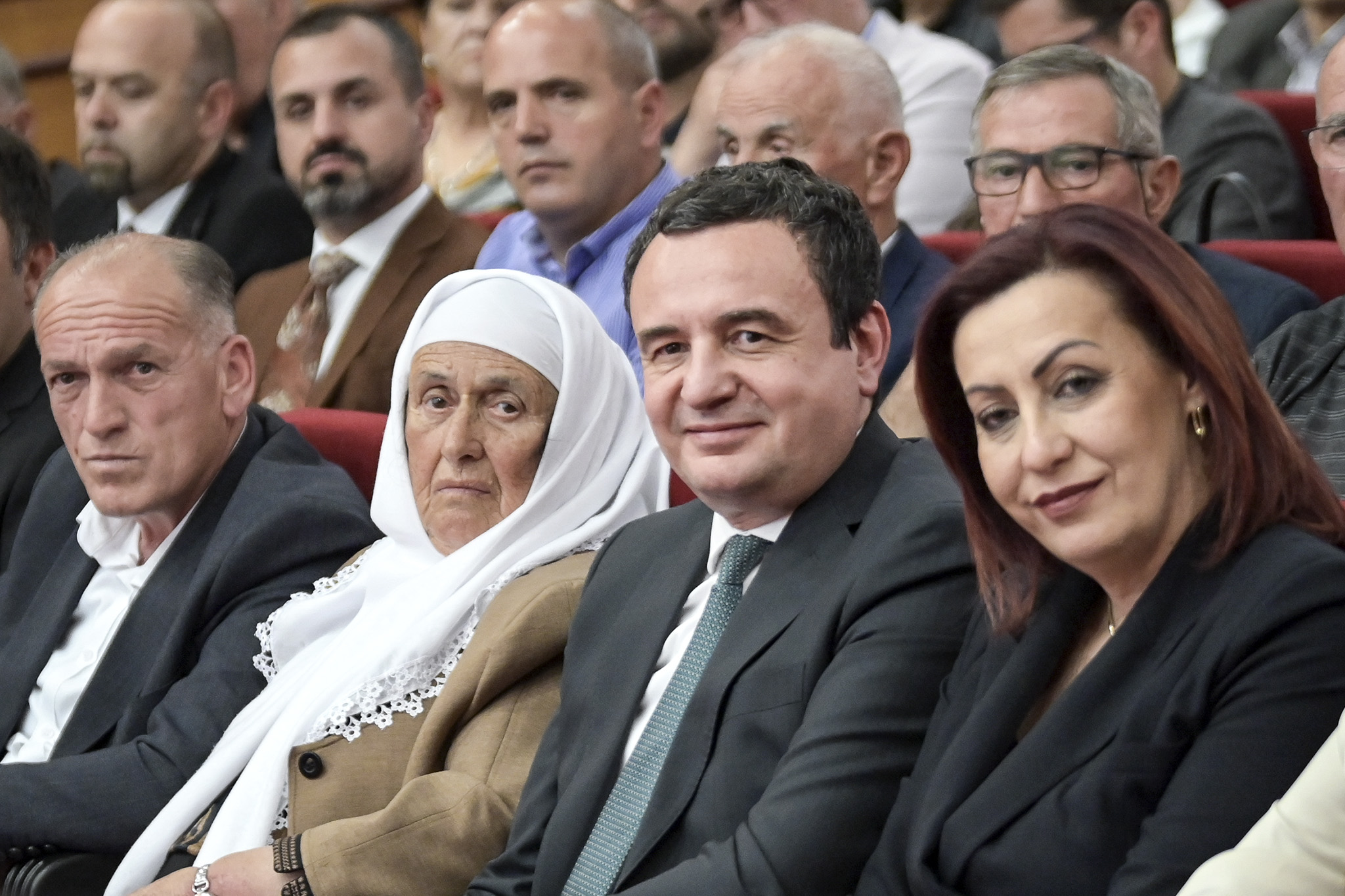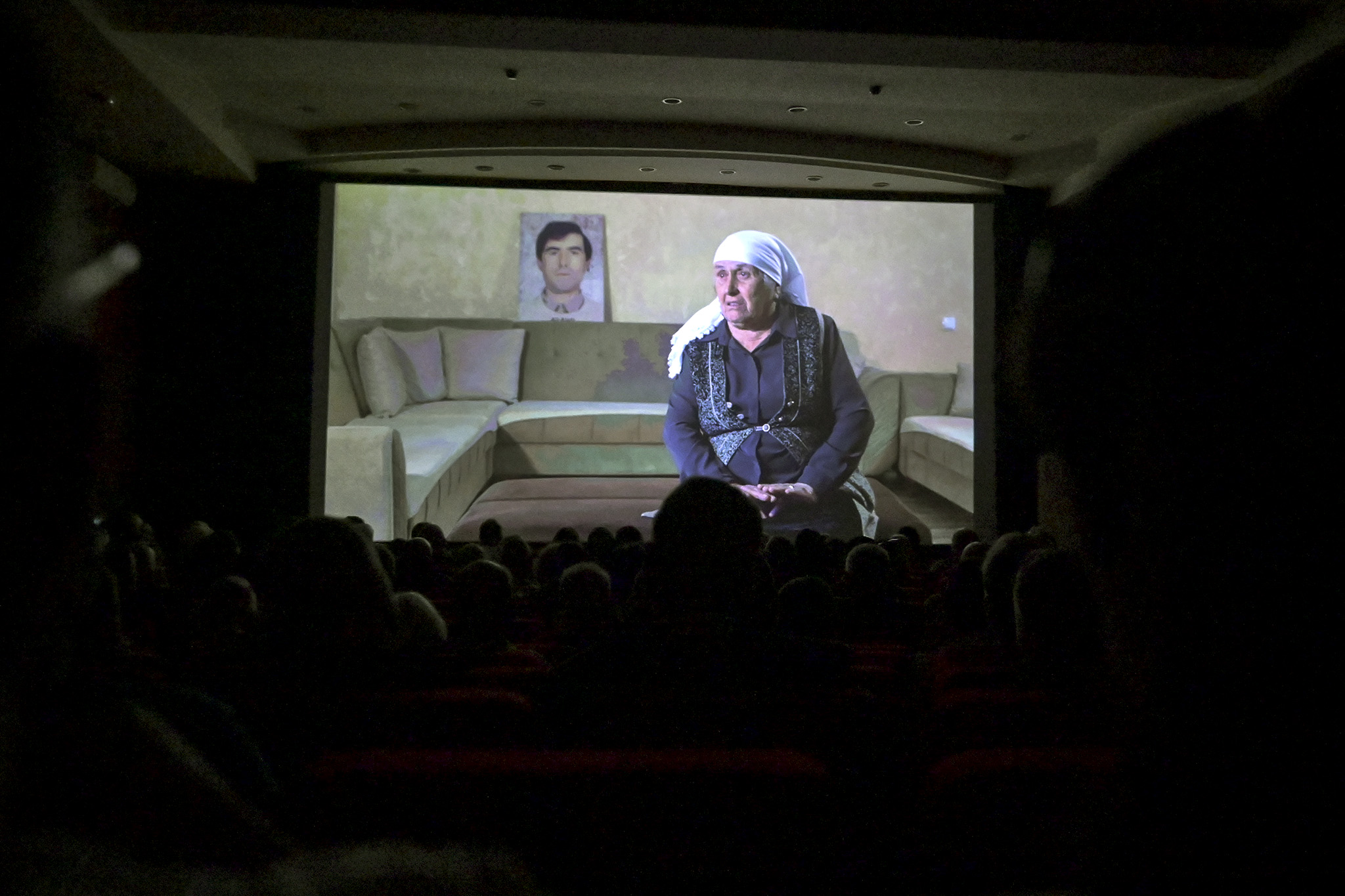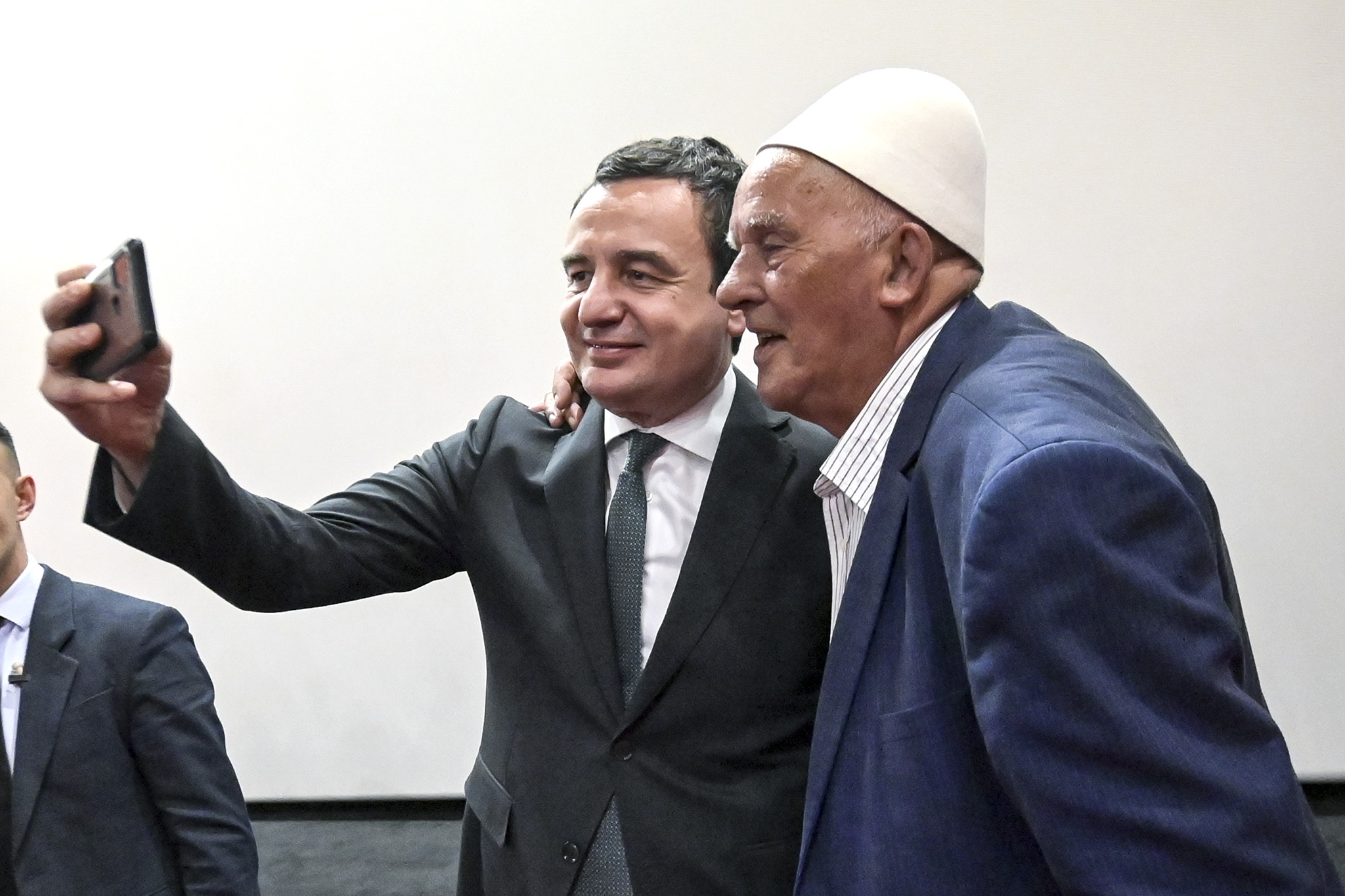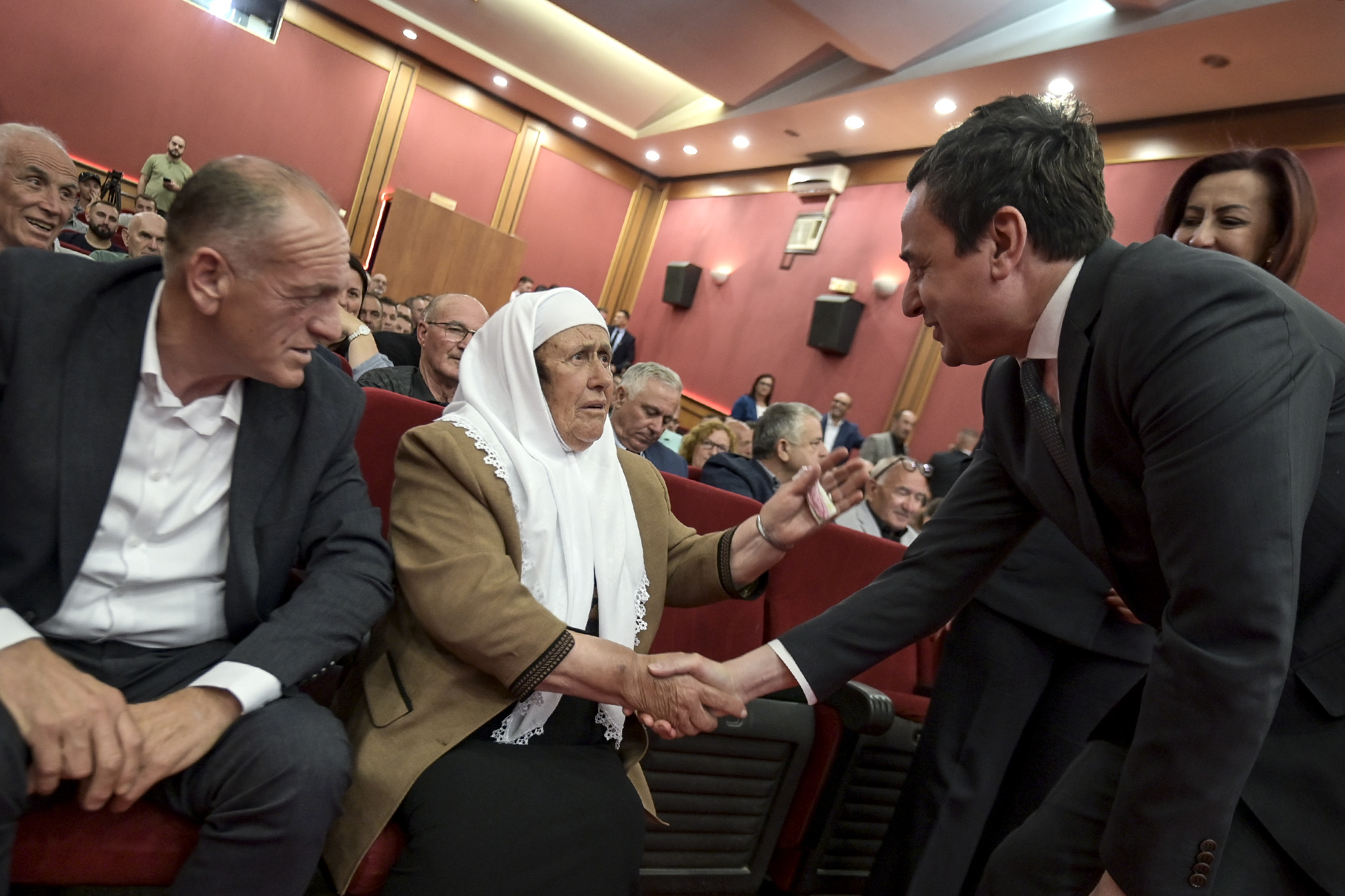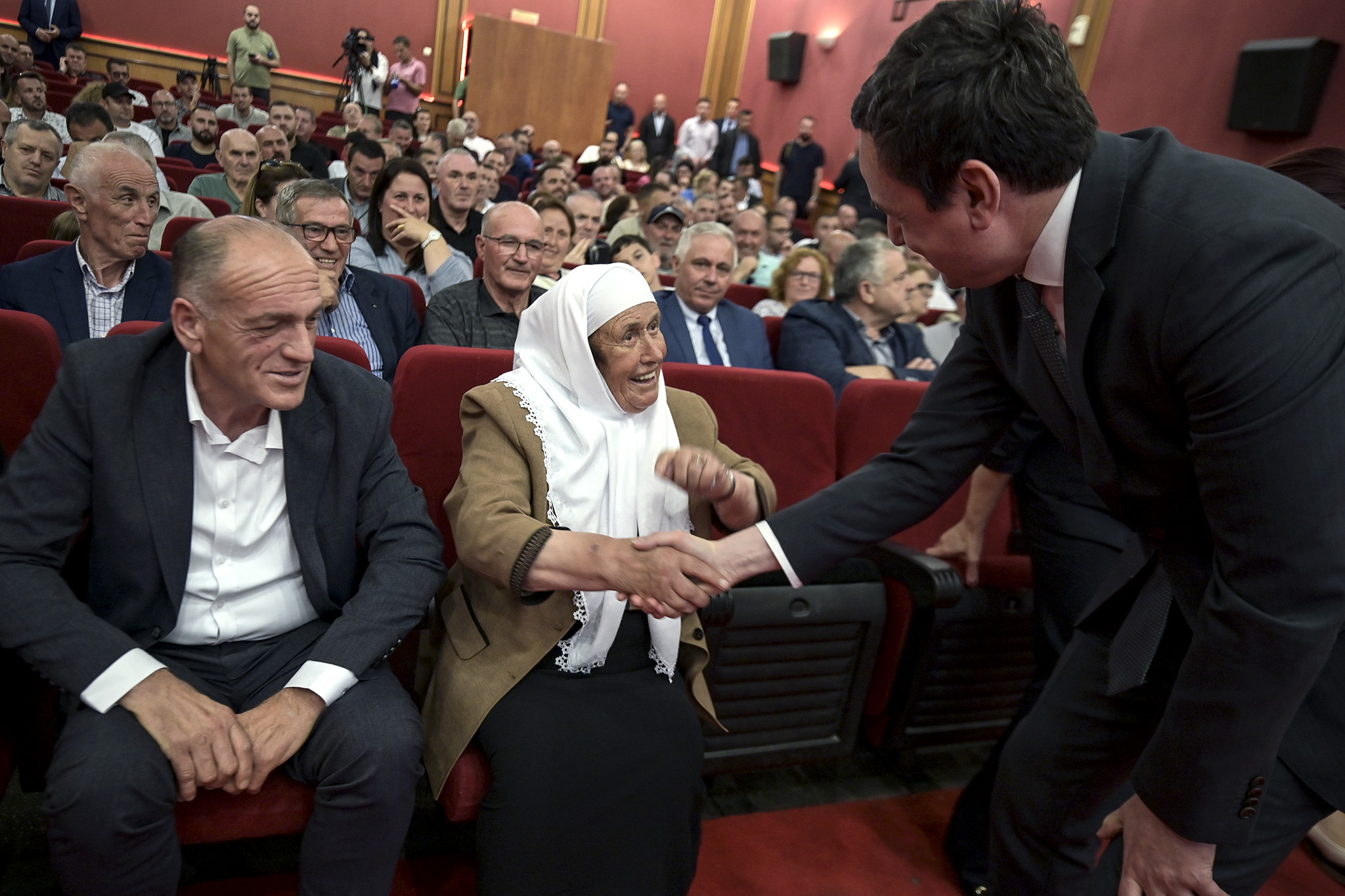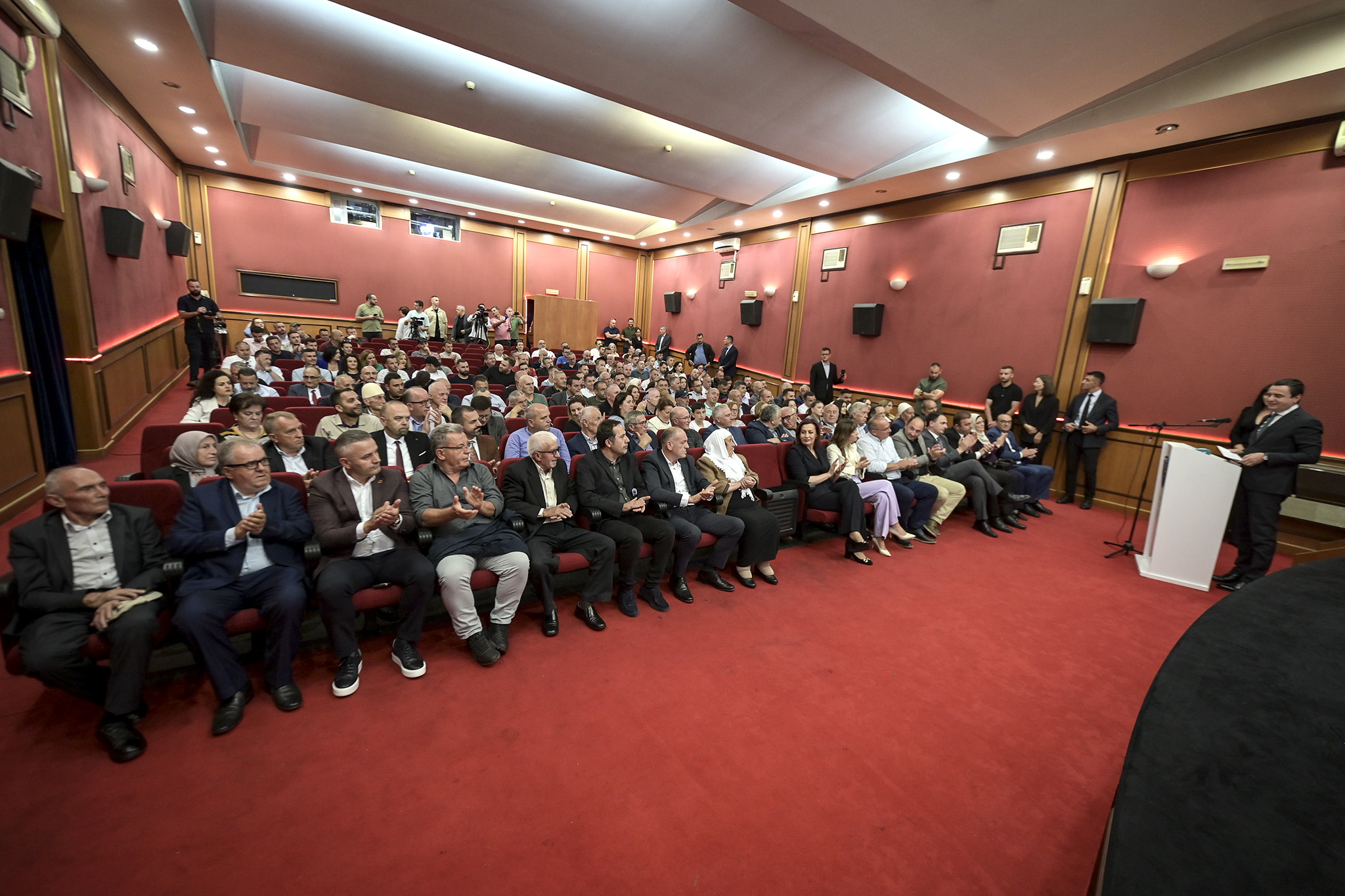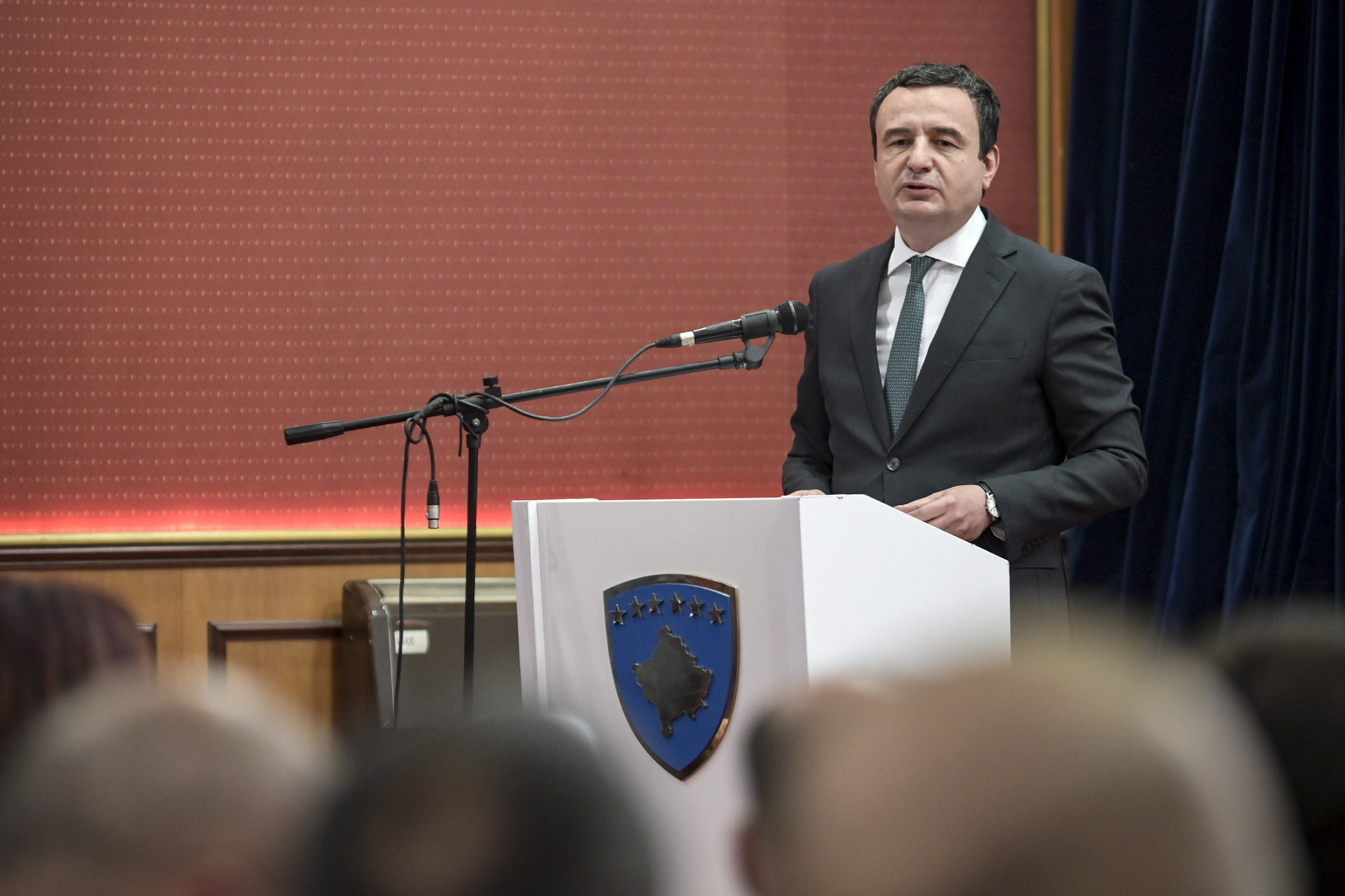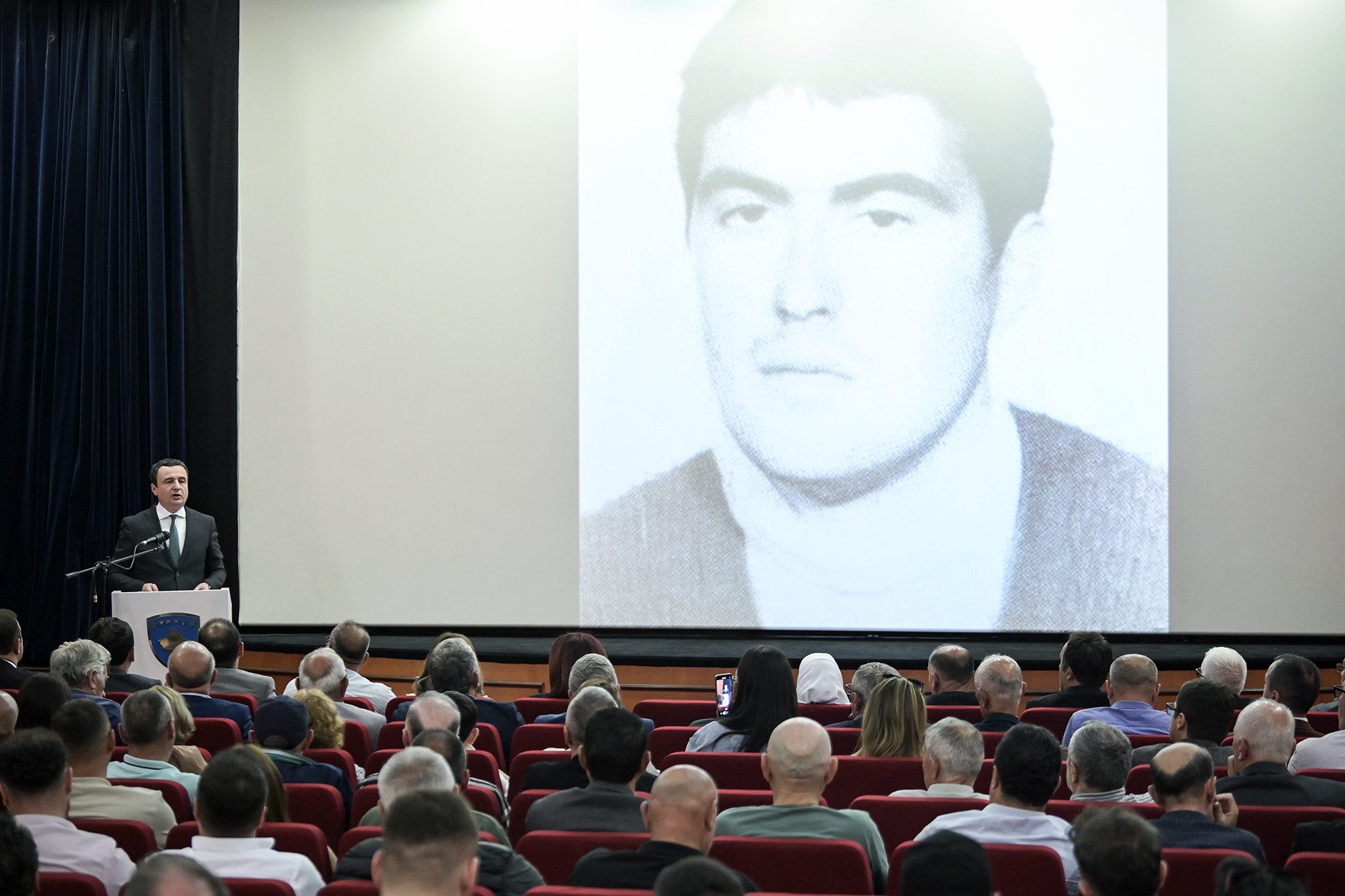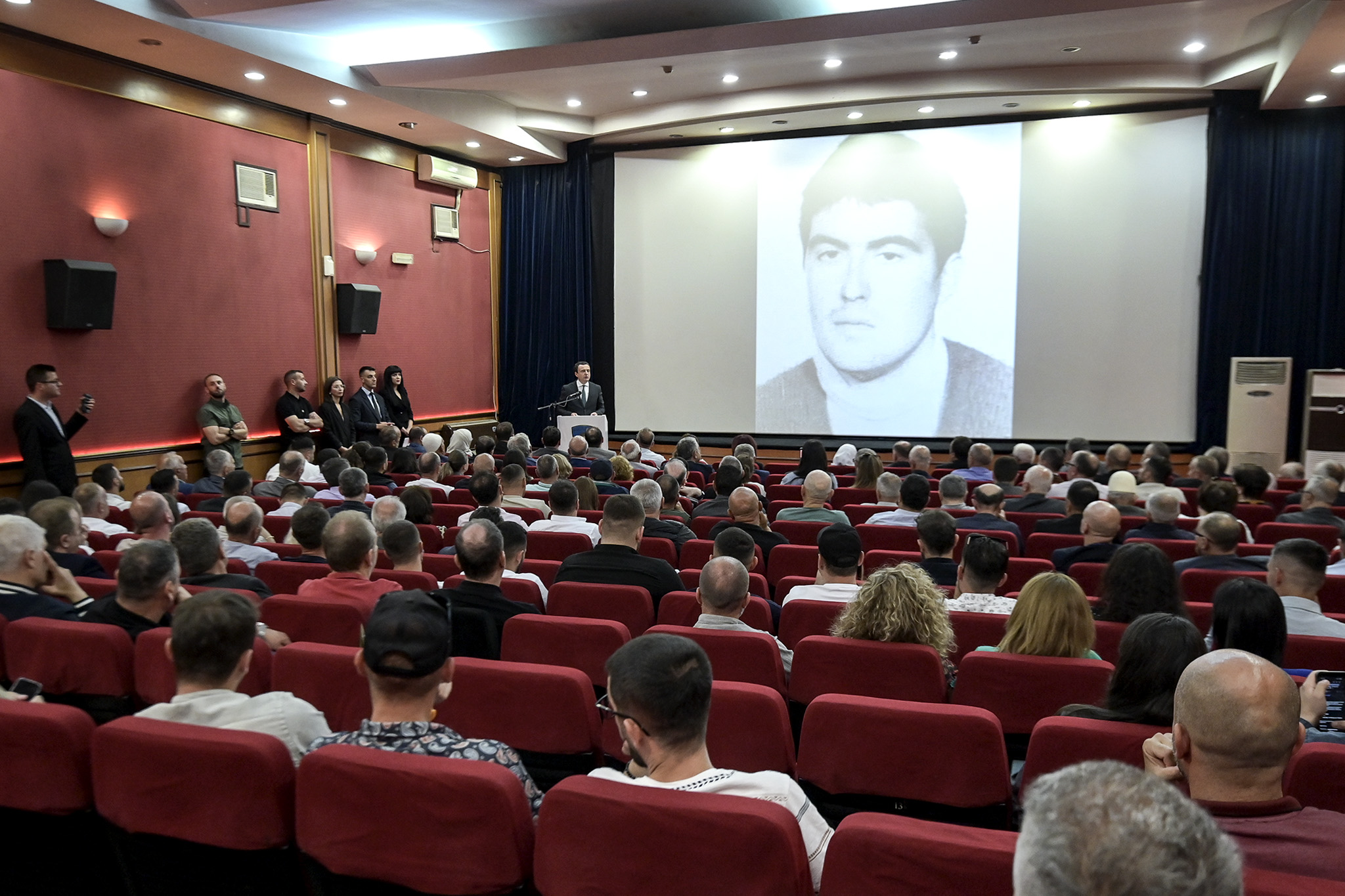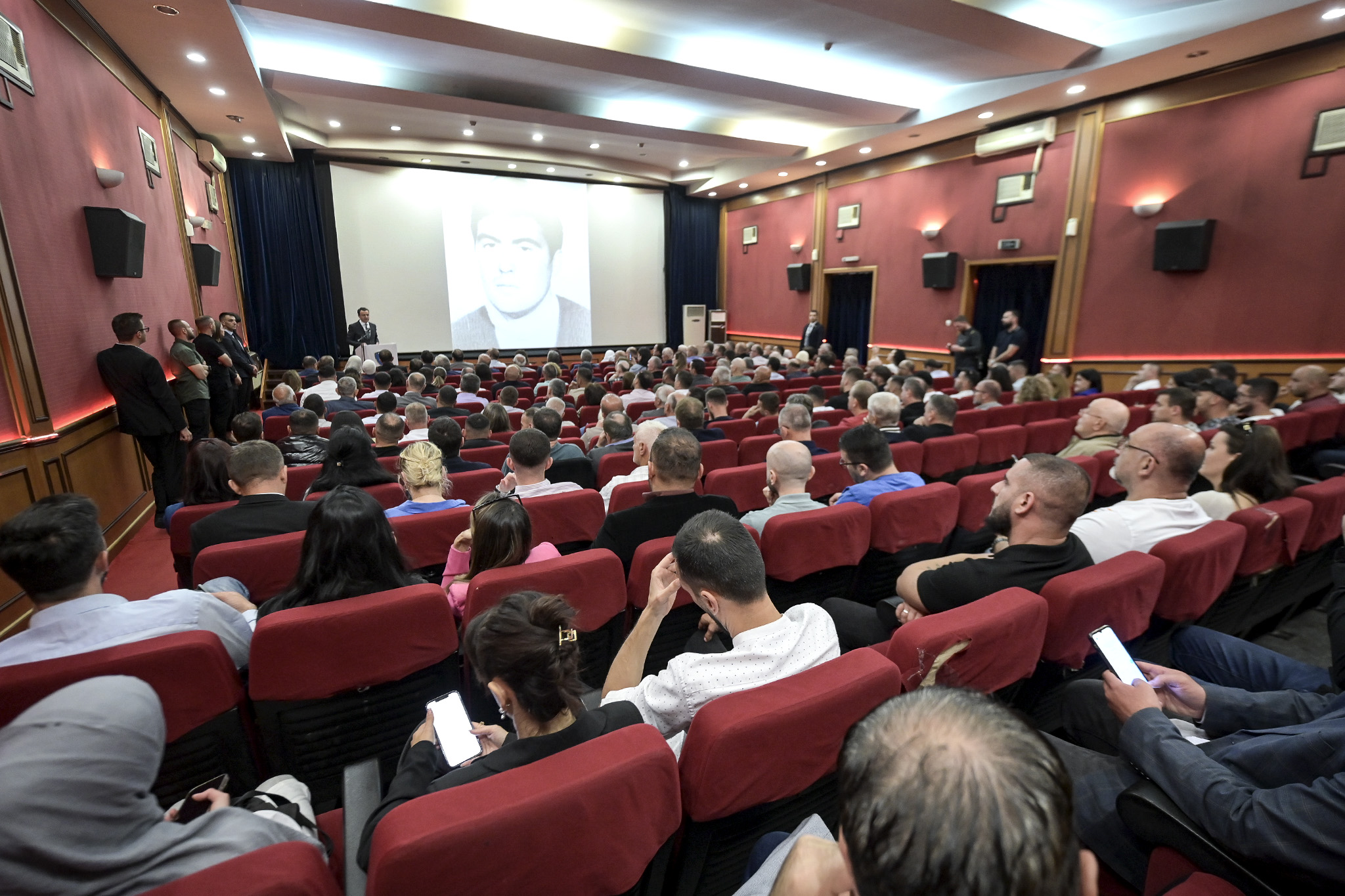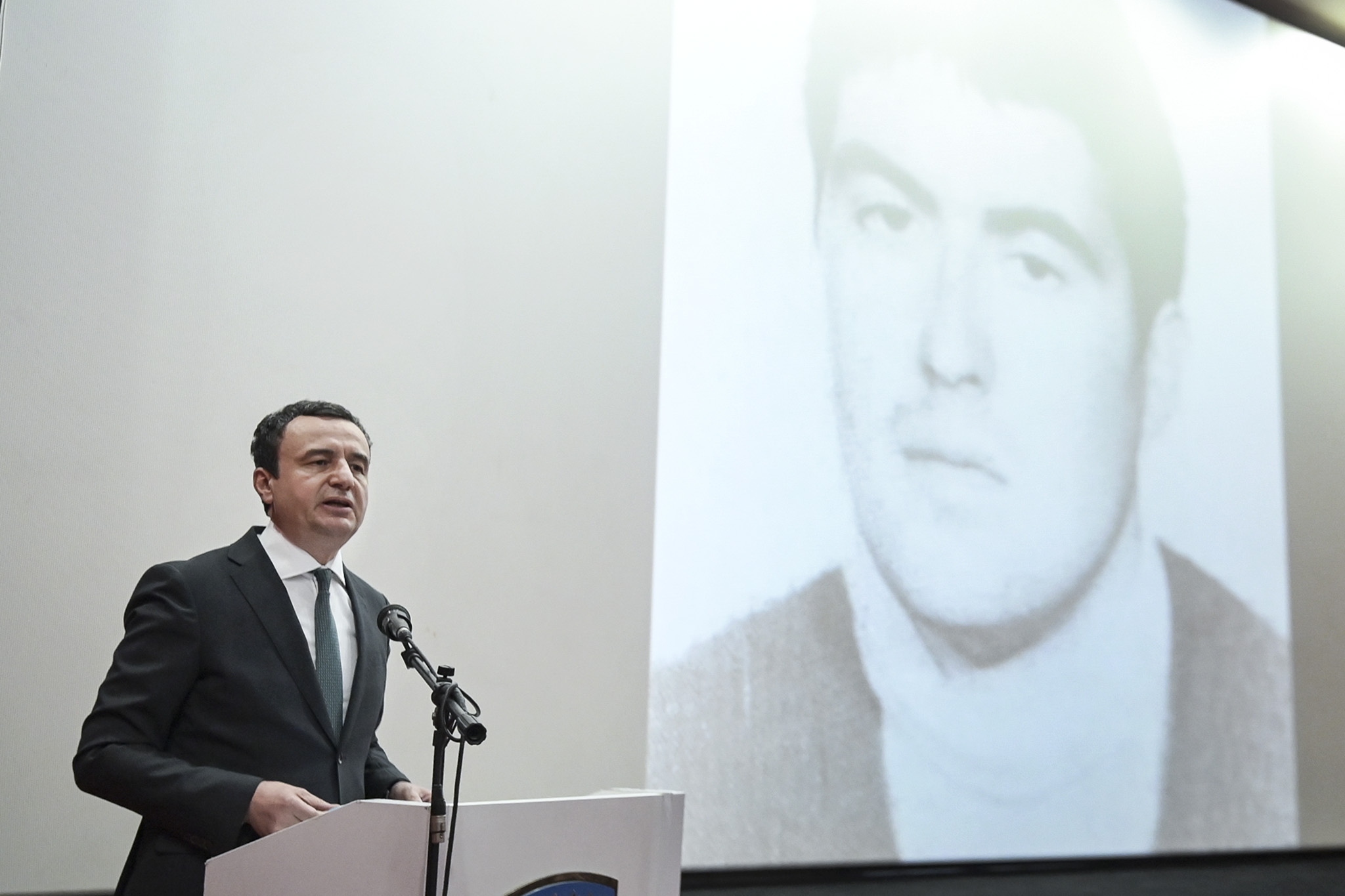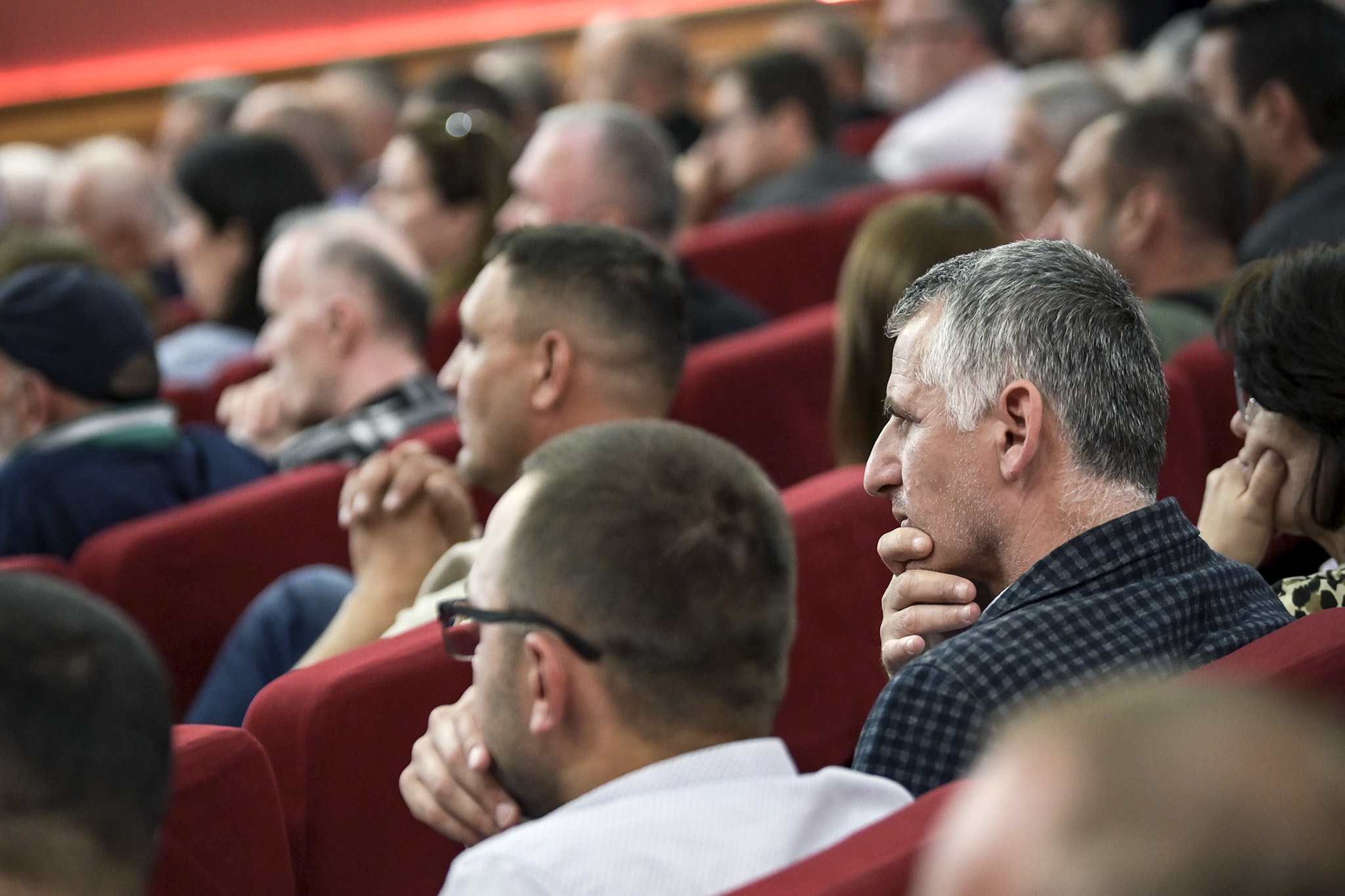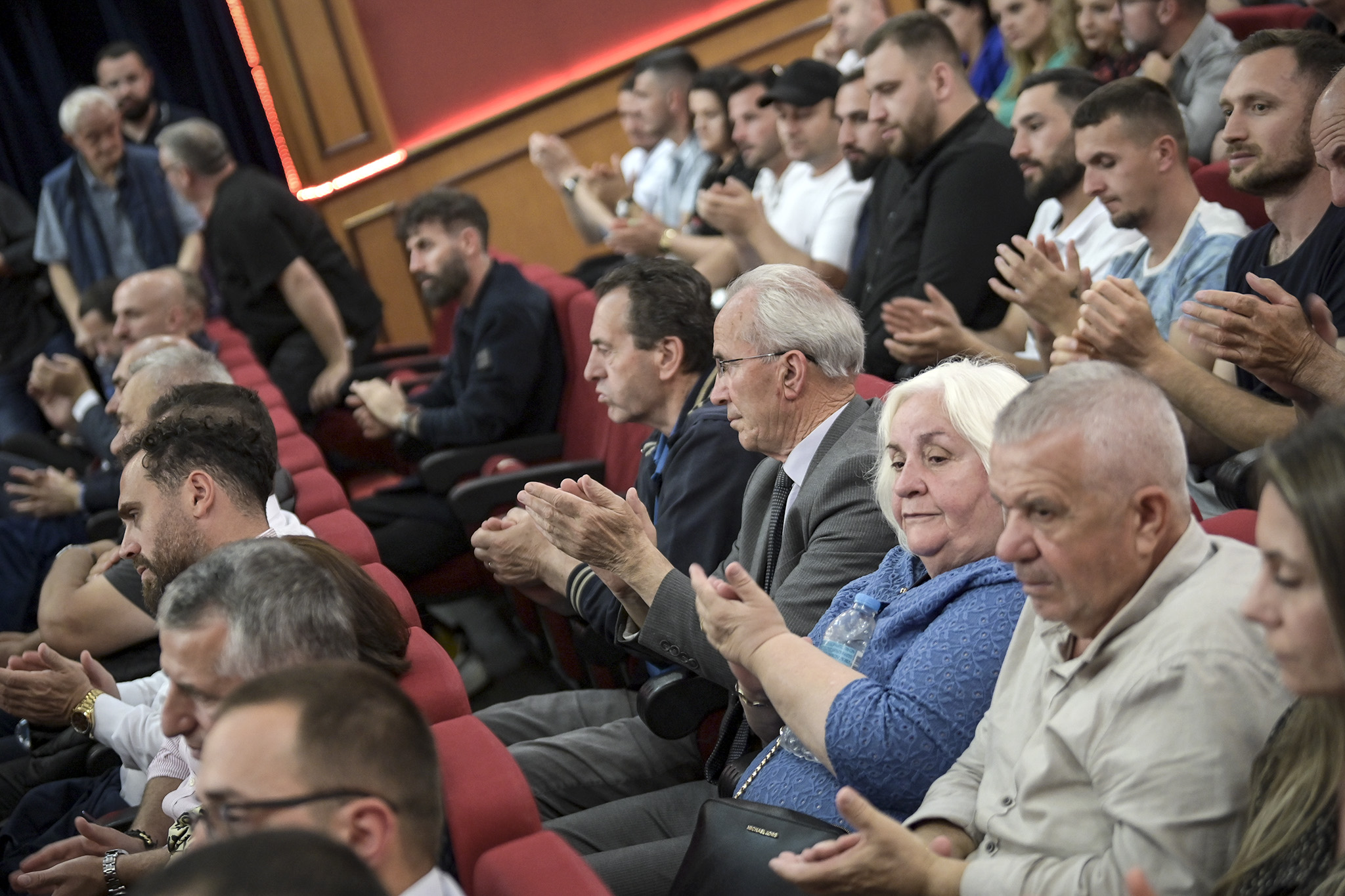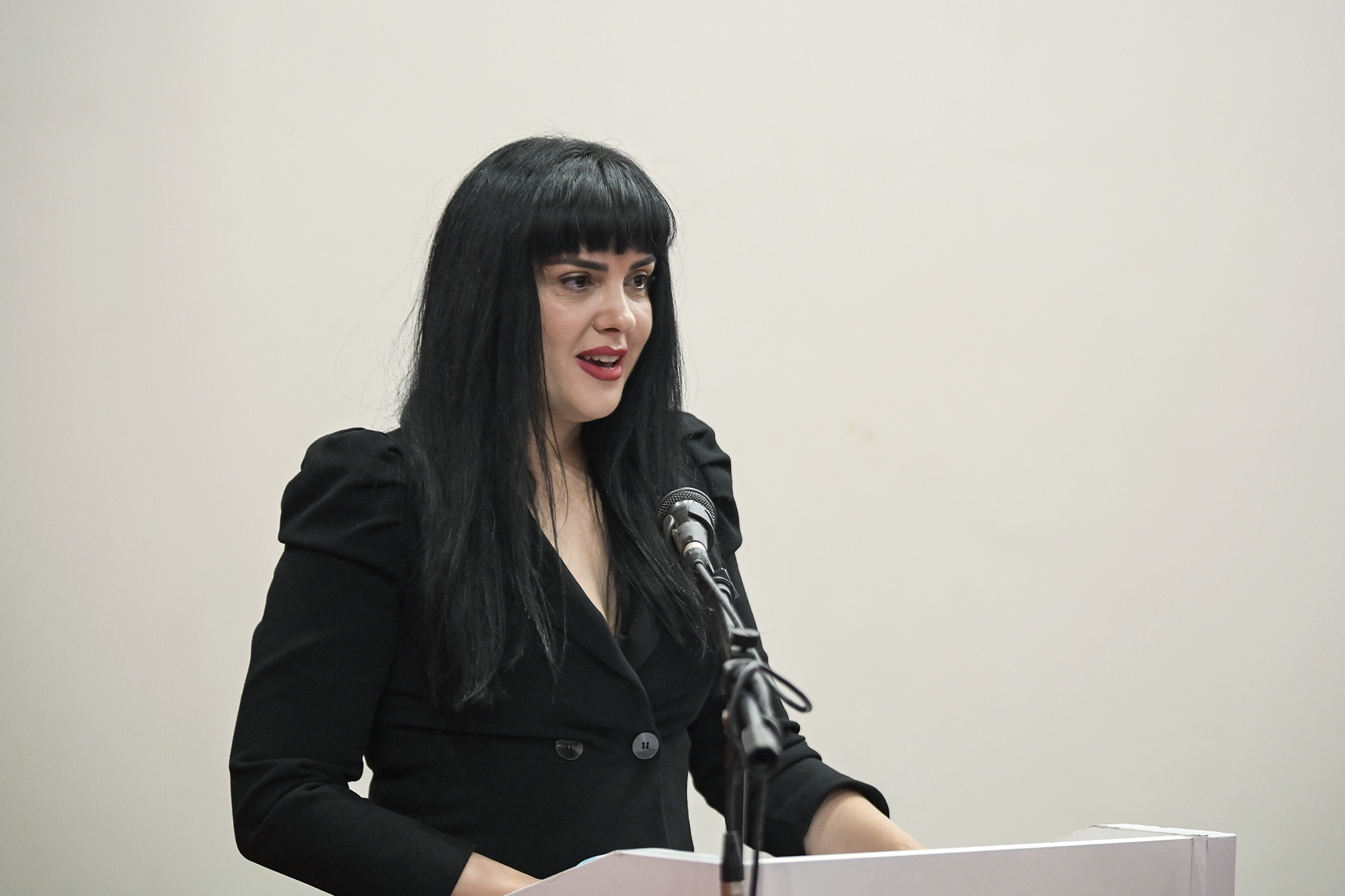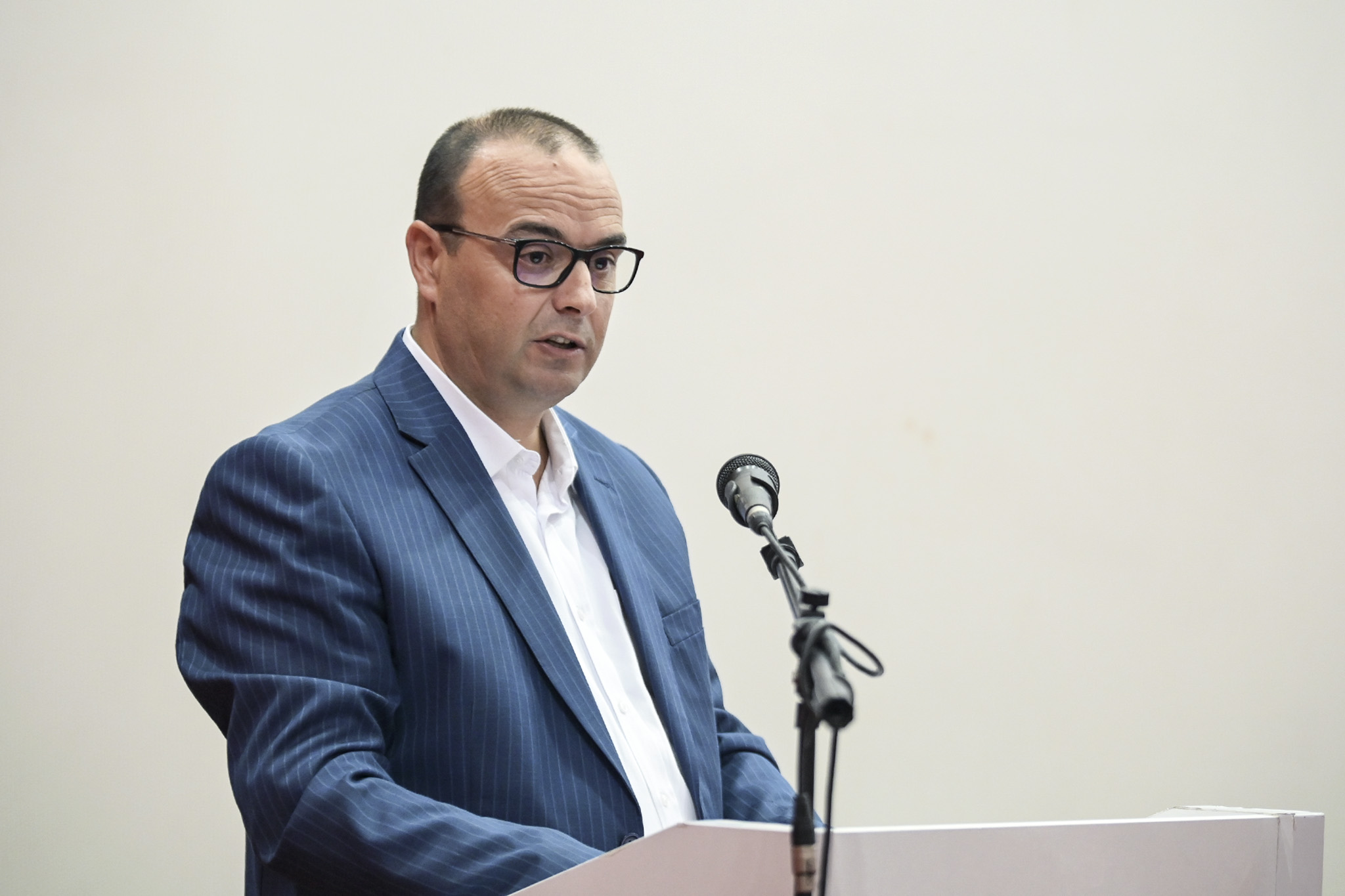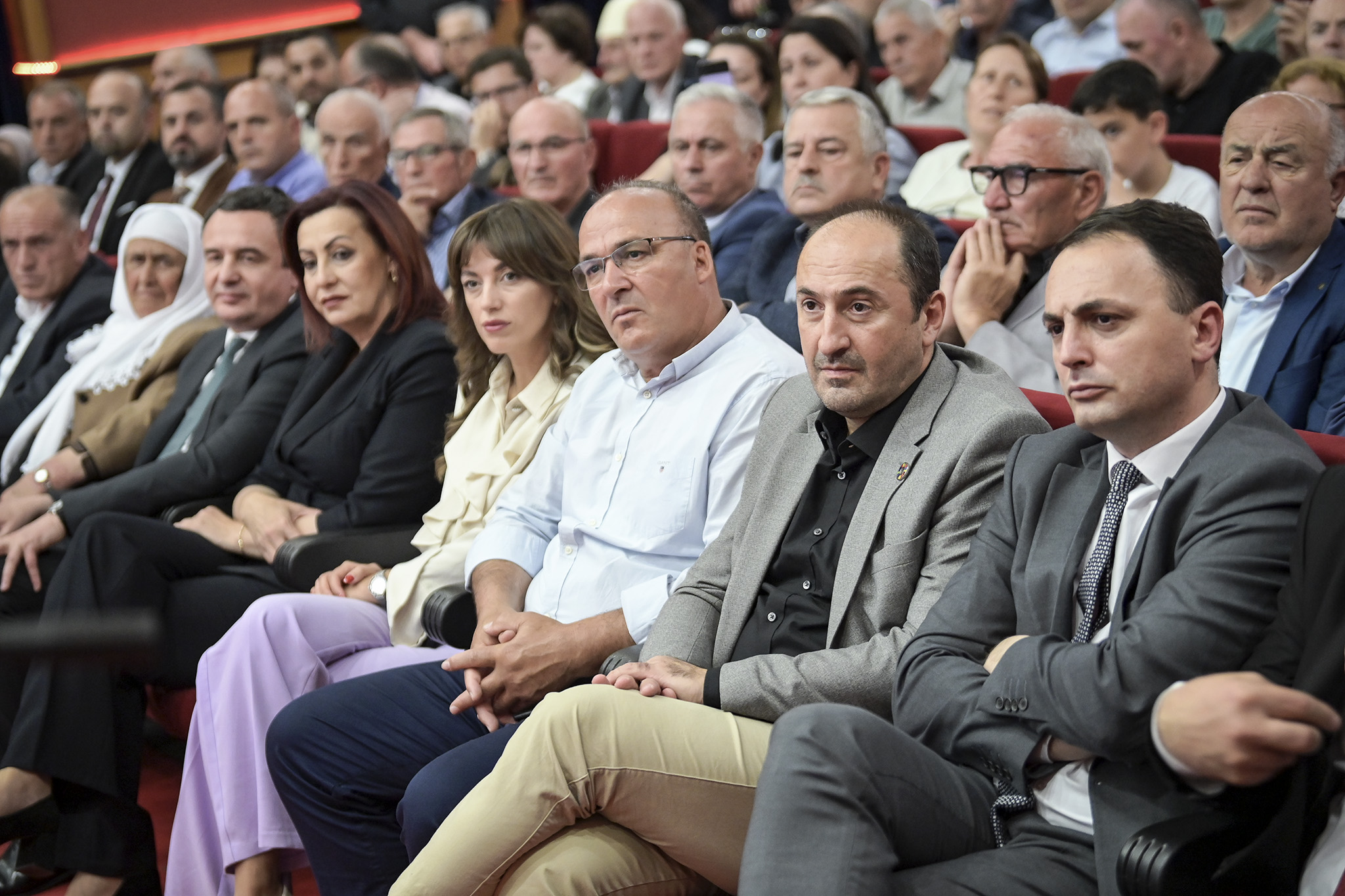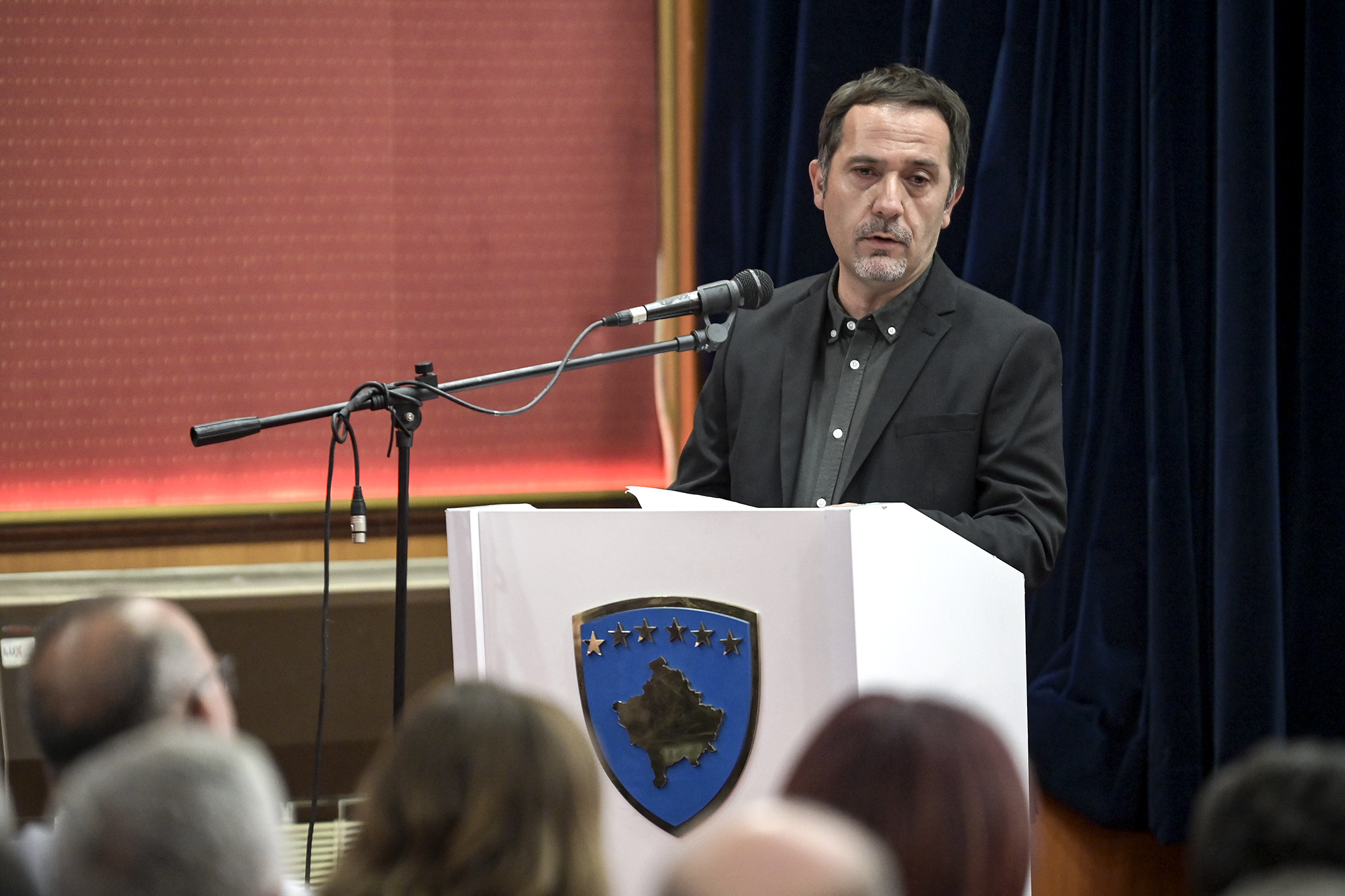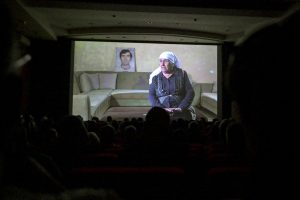Prishtina, 30 May, 2024
The Prime Minister of the Republic of Kosovo, Albin Kurti, today participated in the commemorative ceremony organized in his patronage, in honor of the life and work of the nation’s hero, Ali Ajeti, on the 35th anniversary of the fall.
In his speech before the many present, Prime Minister Kurti highlighted that Ali Ajeti was devoted to Kosovo with his whole being, his whole life devoted to the freedom of Kosovo.
“As today marks 35 years since the fall of the martyr Ali Ajeti, it takes two more weeks to mark 25 years since the arrival of freedom for Kosovo. So in this case, the age since the fall of the martyr Ali Ajeti is 10 years older than the age of our freedom that we enjoy, which we also live as a result of the work and fall of Ali Ajeti. This, because for the freedom of Kosovo, its people started paying very early, before the liberation war started, since the resistance and battles for the freedom of Kosovo, are years and decades earlier than the war of 1998 and ’99 when they culminated,” he said.
Speaking about March 1989, Prime Minister Kurti singled out Serbia’s declaration of a state of emergency in Kosovo and days later the adoption of several constitutional amendments with which Serbia arbitrarily gave itself additional powers over Kosovo and consequently the suppression of Kosovo’s autonomy, which at that time it was an autonomous province within Yugoslavia, as an event that preceded the organization and execution of an armed action on March 27, 1989, where one policeman was killed and another wounded from the group known as “Çeta e Llapit”, which was led militarily by Ali Ajeti, and politically by Sabri Kicmari.
“Among dozens of illegal organizations formed and disbanded in Llap since the 1950s, “Çeta e Llapit” was the first organization in Kosovo that had a military character, that is, an armed resistance. “Çeta e Llapit” was the heir of an even earlier group called “Llapi’s illegal group”, formed on July 10, 1981 in Podujevë, by Ali Ajeti, Avdi Gjata and Hamit Hamiti, said the prime minister.
Many members of this group were arrested and politically imprisoned at that time, including Ali Ajeti, who after six months in the investigation, on June 18, 1984, was sentenced to five years in prison. In the same political trial with Ali, Bajram Ajeti, Sherif Konjufca, Avdi Gjata, Ismet Begolli, Musa Jupolli, Sabri R. Hamiti, Mustafa Xhemajli, Bajrush Behrami, Kadri Llugalliu and Shaban Mulolli were also convicted.
After his release from prison, at the age of 31, Ali Ajeti returned to his commitment to the freedom of the people and the liberation of his country. On May 30, 1989, on the day when a delegation of the European Parliament was in Kosovo that had come to Kosovo to see the state of the Albanians, in Podujevë Ali Ajeti and his friends from the “Çeta e Llapit” organized a mass demonstration with the slogans: “Kosova Republic”, “Self-determination”, “Freedom, equality, democracy”, “Parliament do not allow apartheid”, etc., the police of Serbia reacted violently to the demonstrators, while Ali Aliu, who was also armed, resisted with a weapon, until he was killed. That Tuesday, Ali Ajeti was martyred, the prime minister recalled.
“The delegation of the European Parliament declared itself disappointed that it was not possible to meet the prisoners, intellectuals and workers, while also ascertaining the murder of Ali Ajeti. It would take another ten years, during which many of Ali Ajeti’s friends would also wage a liberation war, successive battles, and even martyrs like him would fall, so that Kosovo would be freed and then become a Republic. As they dared to dream of it, to wish for it, as they sought it and as they acted and died for it, Ali, his comrades of the “Çeta e Llapit” and other patriots. Despite being devoted to Kosovo, his whole life dedicated to the freedom of Kosovo”, said Prime Minister Kurti at the end of his speech.
In this memorial academy, where Ali Ajeti’s family members and collaborators, members of the Assembly of Kosovo, leaders and representatives of central and local institutions were present, the documentary made by Radio Television of Kosovo about the work and life of Ali Ajeti and “Çeta e Llapit”.
Işa Ajeti, on behalf of the family of the hero Ali Ajeti, thanked all those who contributed to the realization of the documentary and the recording of this day, dedicated to the life and work of the hero Ali Ajeti, in particular the friends and girlfriends of the hero’s ideal, who narrated the vicissitudes and experiences of that time, Radio Television of Kosovo and the Office of the Prime Minister, for the promotion of this documentary, which will remain in the archives of the history of Kosovo.
Prime Minister Kurti’s complete speech:
Dear Ajeti family,
Dear mother Vahide,
Dear Isa Ajeti,
Dear Deputy Prime Minister, Emilija Rexhepi,
Dear Ministers and Deputy Ministers,
Heads and representatives of institutions,
The Honorable Mayor of Podujeva Municipality, Shpëtim Bulliqi,
Dear members of the Assembly of the Republic,
The honorable Mr. Rilind Gërvalla from Radio Television of Kosovo,
Dear sisters and brothers,
Dear attendees,
Ladies and gentleman,
During the entire first half of this year, as well as now when we are only two weeks before the 25th anniversary of the liberation of Kosovo, we have commemorated with respect all the martyrs of the freedom of our homeland, wherever and whenever. Remembering the martyrs for every day, as today we are remembering the martyr Ali Ajeti, distinguish the different ages of the martyr’s existence as their physical lives end, more and more than the age of freedom they brought us.
As today marks 35 years since the fall of the martyr Ali Ajeti, it takes two more weeks to mark 25 years since the arrival of freedom for Kosovo. So in this case, the age since the fall of the martyr Ali Ajeti is 10 years older than the age of our freedom that we enjoy, which we also live as a result of the work and fall of Ali Ajeti. This is because for the freedom of Kosovo, its people began to pay very early, before the liberation war began, since the resistance and battles for the freedom of Kosovo are years and decades earlier than the war of 1998 and ’99 when they culminated.
True, the war in Kosovo broke out at the beginning of 1998 and ended in the middle of 1999 with the epilogue of the liberation of Kosovo, but the prelude to this war stretches back at least a decade, in 1989. This is a year when big leaps in the former Yugoslavia, where we were oppressed, after which the political fate of that Federation where the Albanians were included without disregarding their political will, took an irreversible turn.
It was this year when AVNOJ’s Yugoslavia finally became Milosevic’s Yugoslavia. On March 1, 1989, Serbia declared a state of emergency in Kosovo, which at that time was still an autonomous province within Yugoslavia. A few days later, on March 18, 1989, Serbia approved some constitutional changes that arbitrarily gave itself additional powers over Kosovo, and five days later, on March 23, 1989, the terrorist regime of Serbia suppressed Kosovo’s autonomy. Four days later, on March 27, 1989, some boys from the Llap area carried out an armed attack, killing one policeman and injuring another. They belonged to a group known as “Çeta e Llapit”, which was led militarily by Ali Ajeti, and politically by Sabri Kicmari.
Among dozens of illegal organizations formed and disbanded in Llap since the 50s, “Çeta e Llapit” was the first organization in Kosovo that had a military character, i.e. an armed resistance. “Çeta e Llapit” was the heir of an even earlier group called “Llapi’s Illegal Group”, formed on July 10, 1981 in Podujevë, by Ali Ajeti, Avdi Gjata and Hamit Hamiti.
But in the meantime, many of the members of this group were arrested and politically imprisoned, scattered all over the dungeons of the former Yugoslavia, as if even Ali Ajeti himself, who after six months in the investigator, on June 18, 1984, was sentenced to five years in prison. In the same political trial with Ali, Bajram Ajeti, Sherif Konjufca, Avdi Gjata, Ismet Begolli, Musa Jupolli, Sabri R. Hamiti, Mustafa Xhemajli, Bajrush Behrami, Kadri Llugalliu and Shaban Mulolli were also convicted. Born on August 10, 1957, Ali Ajeti spent 27 years in prison, as he suffered in Pristina prison, Mitrovica prison, Gjurakoc prison, Dubrava prison and Peja investigation prison, until he was released from prison. He was already 31 years old. But being free from prison did not offer freedom to Ali Ajeti, nor to his friends, nor to the people of occupied Kosovo, so after his release from prison, did Ali return to his commitment to the freedom of the people and the liberation of his country.
This continued for several months until May 30, 1989, when a delegation of the European Parliament came to Kosovo, headed by Julian Grimaldos, and composed of the following members: Giorgio Rosseti, Emilio Espedes, Frode Kristoffersen and Lisilot Siebel Emmerling. They came to Kosovo to see the condition of the Albanians, who were politically oppressed, economically crushed and inhumanely discriminated against by the Serbian regime. In the agenda of the delegation of the European Parliament, it was foreseen that at 13:00, its members would visit the city of Podujeva. It was at that time that Ali Ajeti and his friends from the “Çeta e Llapit” organized a massive demonstration in Podujeva with the slogans: “Kosova Republic”, “Self-determination”, “Freedom, equality, democracy”, “Parliament do not allow apartheid”, etc.
The Serbian police reacted violently to the demonstrators who were holding national flags and banners in their hands, while Ali, who was also armed, resisted with a weapon, until he was killed. That Tuesday, May 30, 1989, Ali Ajeti was martyred, ending his courageous life with a heroic fall. The delegation of the European Parliament declared itself disappointed that it was not possible to meet the prisoners, intellectuals and workers, while also ascertaining the murder of Ali Ajeti. It would take another ten years, during which many of Ali Ajeti’s friends would also fight a liberation war, consecutive battles, and even martyrs would fall, but like him, for Kosovo to be freed and then to become a Republic. , as they dared to dream, to desire, as they sought it and as they acted and died for it, Ali, his comrades of the “Çeta e Llapit” and other patriots. Despite being devoted to Kosovo, his whole life dedicated to the freedom of Kosovo.
Glory to the work of the martyr Ali Ajeti and all the martyrs of the nation!

